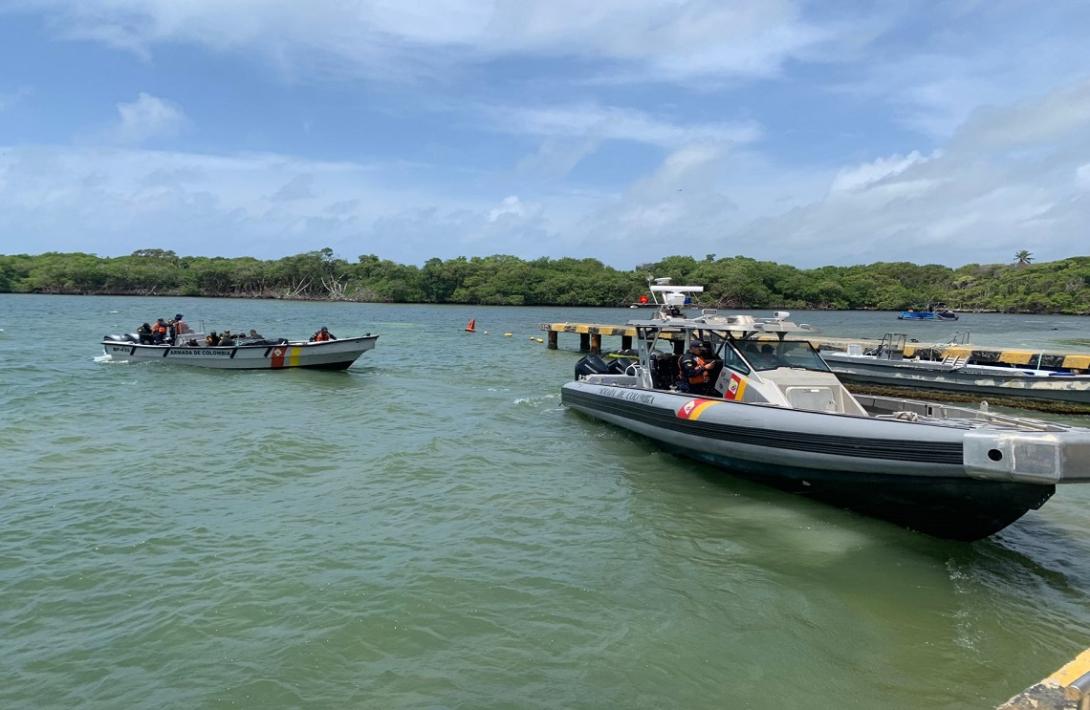According to CORALINA resolution 611 of 2022, the baiting and manipulation of sea fauna in the Archipelago is prohibited.
Within the framework of the d-23 deployment of the Acorazado Plan, security strategy on the occasion of the tourist season in the Archipelago of San Andrés, Providencia and Santa Catalina, the Colombian Navy, in coordination with the National Police and the Corporation for the Sustainable Development of the Archipelago - CORALINA -, intervened an illegal activity that directly hits the balance of the sea ecosystem.
During a maritime patrol operation in the Cayo Acuario sector, three people were caught baiting sea specimens such as sharks and manta rays, allegedly for the purpose of attracting tourists. This practice alters the natural behavior of animals, breaks the balance of the food chain and generates artificial food dependence, thus damaging the biodiversity of one of the most important nature reserves in the country.
In addition to the environmental impact, this illegal activity poses a risk to the safety of sea users, including tourists and workers in the nautical sector. The alteration of the natural behavior of specimens such as sharks can generate dangerous situations by encouraging an unnatural interaction between humans and wildlife, especially in areas frequented for recreation, such as diving or snorkeling. The constant presence of these specimens, artificially attracted, increases the probability of incidents and puts at risk those who enjoy the Caribbean Sea as a tourist destination or means of subsistence.
Those involved, all of Colombian nationality, were arrested by the National Police and transported by the Colombian Navy aboard a Rapid Reaction Unit - URR -, to the dock of the Coast Guard Station of San Andrés, where the corresponding judicial procedures were initiated.
The Colombian Navy, through the Caribbean Naval Force and its Specific Command in the Archipelago, reaffirms its commitment to the protection of the country's natural heritage, especially the Seaflower Biosphere Reserve. It in the same way invites people to reject and denounce these types of practices that put the environmental sustainability of this island territory at risk.
Source: Press – Navy of Colombia

